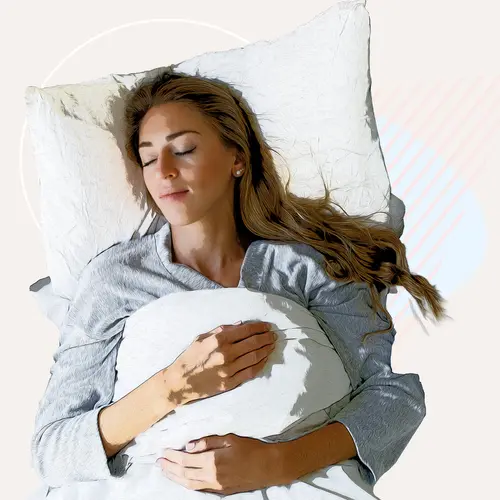Karen D.' s husband was not sleeping well. Every night after he settled into bed, Karen would start to snore -- loudly and all night long.
"My husband had been complaining for years about my snoring, and it was getting worse," says Karen, of Boston. "Even when I went away with my girlfriends, no one wanted to share a room with me."
While Karen's snoring was keeping everyone within earshot awake, it was also affecting her own sleep. For as long as she could remember, the Bostonian lumbered through her days with bleary eyes, overwhelmed with exhaustion. Finally, Karen and her husband grew tired of being tired, and she called her doctor.
"I explained my symptoms, and told him how long I'd been suffering from lack of sleep, and how bad my snoring had become," says Karen. "My next stop was a sleep lab."
If you have similar difficulties -- and you're not alone, since more than 40 million Americans are affected by sleep disorders -- an overnight stay at a sleep disorder laboratory could be just what the doctor ordered. And while it sounds mysterious and clandestine, it's really just a place where sleep experts monitor your shut-eye and diagnose one of the many things that can go wrong when the lights go out.
"There are close to 90 sleep disorders that can affect a person," says Clete Kushida, director of the Stanford Center for Human Sleep Research. But the good news is your overnight at a sleep lab is relatively simple: "All you need to do is sleep, and let the techs work their magic," says Karen.
While you are busy unwinding, sleep technologists are busy around the clock, using electrodes and other devices to measure electrical activity of the brain, muscle movement, heart rate, snoring intensity by means of a microphone, and airflow, Kushida explains. The technologists not only get up close and personal with wires and microphones but also record your sleep, or lack thereof, on camera to catch strange behaviors, such as sleepwalking.
When your overnight visit ends, a physician, usually certified by the American Academy of Sleep Medicine, reviews your sleep stats, makes a diagnosis, and prescribes a treatment for some long-overdue zzz's.
In the case of Karen, whose results revealed she had sleep apnea -- or pauses in her breathing during sleep, which led to short bouts of oxygen deprivation -- "spending a night at the sleep lab really made the difference between not sleeping and finally feeling rested," she reports. Her treatment is an air mask to help keep her airways open and unobstructed at night -- and stop the snoring.
Now Karen -- and her long-suffering husband -- are hitting the hay happily, the snoring a distant dream.
Originally published in the September/October 2007 issue of WebMD the Magazine.

